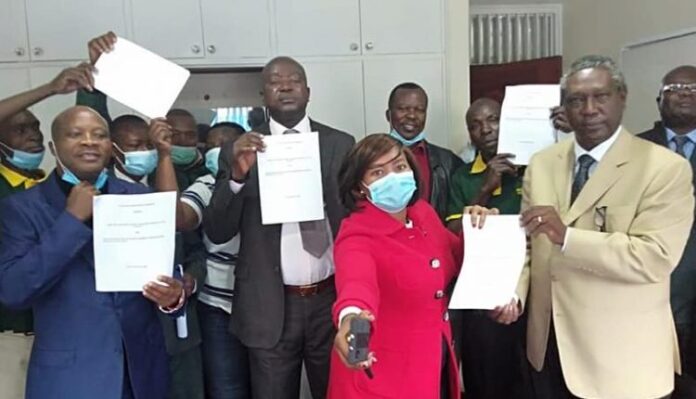All Civil Servants Are Happy as GOVT Signs CBA with Unions
The Government and the Kenya Union of Civil Servants officially signed the Collective Bargaining Agreement (CBA) for the 2021-2025 cycle this morning in Nairobi.
The ceremony was presided over by Mr. Amos Gathecha, the main secretary of the State Department for Public Service, who underlined the need of working with trade unions to create CBAs that benefit public employees. The goal is to promote excellent labor relations and prevent strikes in the public sector.
Gathecha noted that the prior fragmented approach to collective bargaining agreements, in the absence of a unified negotiating organization and structure, had resulted in many CBAs being signed by diverse public sector institutions at both the national and county government levels.
These agreements frequently departed from established norms and employee conditions of service, resulting in salary and benefit anomalies, delays in discussions, labor disputes, and disruptions in public service delivery.
To address these problems, the State Department for Public Service has established a framework to standardize and guide collective bargaining agreements in the public sector in partnership with key government departments.
The terms and conditions of the CBA with the Kenya Union of Civil Servants (UKCS), comprehensive medical and group life insurance programs for civil servants, and the establishment of a payroll management policy to maintain a sustainable public sector wage bill are key areas of focus.
Gathecha stated that the CBA negotiation process, which included salary, allowances, employer-employee relations, leave entitlements, medical benefits, and termination of employment, was successful. The budget for this CBA is Ksh 1,135,408,744, and it will go into effect on July 1st, 2023.
The second phase, which will begin on July 1st, 2024, will have a budget of Kshs. 1,126,486,162. The Salaries Review Commission has also authorized budgets of Kshs. 115,071,472 for the first part of the house allowance review and Kshs. 223,694,412 for the second phase.






